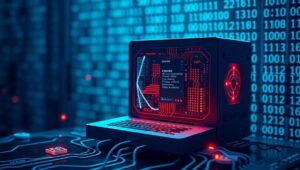The Economics of Quantum Computing: Investing in the Future (Post-2025)
The Economics of Quantum Computing: Investing in the Future (Post-2025) Quantum computing, once a theoretical concept, is rapidly transitioning into a tangible reality with the potential to revolutionize industries and reshape the global economy. While still in its nascent stages, the economic implications of quantum computing are already attracting significant attention from investors, governments, and businesses alike. This post explores the economic landscape of quantum computing, focusing on investment opportunities and potential returns post-2025. Understanding the Quantum Computing Market The quantum computing market is projected to experience exponential growth in the coming years. Factors driving this growth include: Increased Investment:












